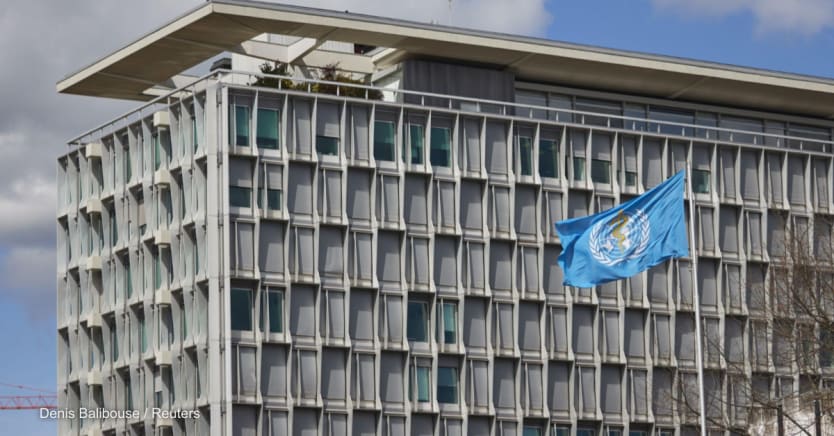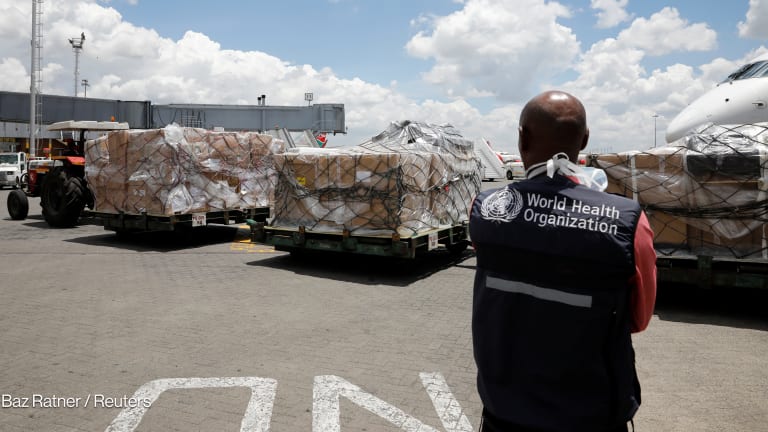
Support is growing among countries for raising the World Health Organization’s membership fees to address its long-standing funding woes, though discussions are far from over, according to a German official leading the consultations.
Sign up for Devex CheckUp
The must-read weekly newsletter for exclusive global health news and insider insights.
WHO’s Working Group on Sustainable Financing was set up earlier this year to tackle the problem in which earmarked, voluntary contributions continue to make up more than 80% of the health agency’s budget, leaving some areas chronically underfunded.
Relating his recent meetings with WHO’s six regional committees, Björn Kümmel, the working group’s chair, said Tuesday during a Devex event on the future of development finance that more than two-thirds of member states that spoke on sustainable financing called for a substantive increase in membership fees, known as assessed contributions.
“There's a strong, positive dynamic with regards to really making change happen now,” said Kümmel, who is also vice chair of WHO’s executive board and deputy head of the global health division at Germany’s Federal Ministry of Health. He said if the COVID-19 pandemic is not enough to fix the “historic challenge” of how to better fund the U.N. health agency, then “we will not get a second chance in the WHO.”
Even so, Kümmel said the discussions still have a “long way to go,” and “not everybody is convinced yet.”
The Independent Panel for Pandemic Preparedness and Response recommended earlier this year that WHO members’ fees should make up two-thirds of the agency’s core budget, with the final third financed through a replenishment process.
The Pro read:
'New momentum' to overhaul WHO financing
The COVID-19 pandemic has renewed interest in a longstanding problem: How to make funding for the U.N. health agency more predictable and efficient.
Asked about the U.S. position on WHO funding reform — which Kümmel acknowledged would be key, given that the country accounts for around 22% of current assessed contributions — he said: “I understand that everybody is constructively engaging and really tries to put their power together in order to move this train forward. And I'm sure we will find a solution.”
Devex has reached out to the Office of Global Affairs of the U.S. Department of Health and Human Services for comment, but has yet to receive a response as of publication time.
Kümmel also linked the funding question to the recent sex abuse scandal involving WHO staffers in the Democratic Republic of Congo, arguing that misconduct investigation efforts and staff security were among the underfunded areas.
And he disputed the idea that changes to WHO’s governance and transparency were required before increasing assessed contributions. “We’ve heard that for too long,” Kümmel said. “I think it’s a tactic to postpone the decision that we need to take in consensus after this pandemic.”
Kümmel is drafting the working group’s report in Geneva this week, and he said the “vast majority” of proposals from member states so far included calls for raising assessed contributions and a replenishment model. The full working group will then meet next month, with its final report to be submitted to WHO’s executive board in January.










